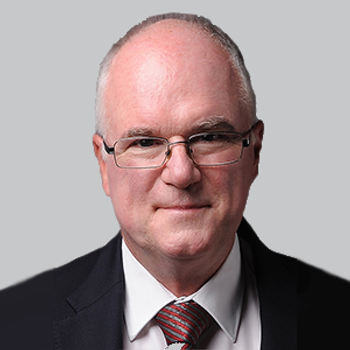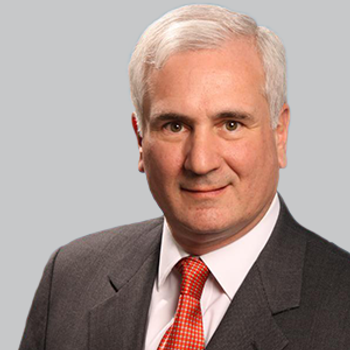
Findings from STROKE 2018 revealed sICH was more likely with right hemispheric patients post-alteplase infusion.

Matt Hoffman, Editorial Director for NeurologyLive, has covered medical news for MJH Life Sciences, NeurologyLive’s parent company, since 2017. He executive produces the NeurologyLive Mind Moments® podcast, and hosted the Medical World News show Deep Dive. Follow him on Twitter @byMattHoffman or email him at [email protected]

Findings from STROKE 2018 revealed sICH was more likely with right hemispheric patients post-alteplase infusion.

Stephen D. Silberstein, MD, discussed the powerful impact that the new class of CGRP inhibitors is beginning to have on migraine.

Michael J. Thorpy, MBChB, spoke about solriamfetol’s success and the possibility of it treating other sleep conditions.

The use of DBS in early Parkinson could slow rest tremor progression in patients.

The human recombinant monoclonal antibody is designed to increase progranulin levels to sustain neuron survival and moderate inflammation.

Hospitals participating in the Get With The Guidelines-Stroke program provided patients with more evidence-based interventions but highlighted a gap in intervening practices.

After a 2-year blinded extension of the RADIANCE trial, ozanimod revealed sustained efficacy in both patients who continued treatment and those who switched from placebo.

In patients with minor ischemic stroke or TIA, the 90-day risk of major ischemic events can be lowered with combination clopidogrel and aspirin compared to only aspirin but slightly raises the risk of major hemorrhage.

The once-daily 15-mg dose resulted in a significant 12-week improvement for patients with the rare condition.

The subcutaneous infusion resulted in 1.89 fewer hours per day spent in “off” periods compared to placebo.

Nine of 10 patients with chronic inflammatory demyelinating polyneuropathy may benefit from a regimen of pulsed corticosteroids followed by intravenous immunoglobulin.

The professor of neurology provided insight into the field of deep brain stimulation and how Abbott's recent FDA approval is a solid step forward.

Abbott’s Infinity Deep Brain Stimulator now allows for performance of MRI on patients with Parkinson or essential tremor with the system implanted.

The vice president of US Medical Affairs in Neurology & Immunology at EMD Serono discussed the potential for the oral multiple sclerosis therapy.

African-American patients with MS on fingolimod were 50.2% more likely to remain true to their treatment regimen than those treated with injectable disease-modifying therapies.

The EMD Serono therapy’s resubmission was accepted after a 2011 CRL, with the new NDA supported by the findings of a 5-study clinical development program.

TNX-102 SL’s impact on sleep disturbance highlights a mechanism of action that could result in positive effects on agitation in AD.

After success in migraine treatment, CGRP has now shown a positive effect on acute cluster headache in a randomized clinical trial.

The anti-amyloid protofibril antibody achieved statistical significance in its key efficacy endpoints after 18 months.

Phase III results have shown galcanezumab is efficacious for multiple headache conditions.

The anti-CGRP treatment continues reducing migraine days a year after patients received infusions.

A retrospective analysis of a dose-ranging trial found that those who were administered 100-mg daily riluzole, in comparison with placebo, spend a longer period of time in stage 4 of ALS.

Across 3 cohorts, the therapy showed improvements in on-time without troublesome dyskinesia, ranging from 2.1 hours to 3.5 hours.

Those treated with ocrelizumab observed a 46% reduction in their risk of progressing to a wheelchair compared to those administered placebo treatments.

The results of a pair of trials of lemborexant support phase III findings of the investigational sleep-wake regulator.

The FDA has granted a Breakthrough Therapy and Fast Track Designation to pitolisant for cataplexy in patients with narcolepsy, as Harmony Biosciences prepares a new drug application for the drug.

The disease-modifying therapy showed significant improvements in 4 TSQM measures for patients with relapsing multiple sclerosis.

The announcement was discouraging to many, as only 2 agents for ALS have been granted FDA approval in as many decades.

Study findings revealed statistically significant results at week 4 for the 100-U dose compared to placebo. The 75-U dose, while effective, did not achieve statistical significance.

The data from the phase III EXPAND study indicated to the researchers that this risk reduction obtained with siponimod was substantially isolated from MS relapse.